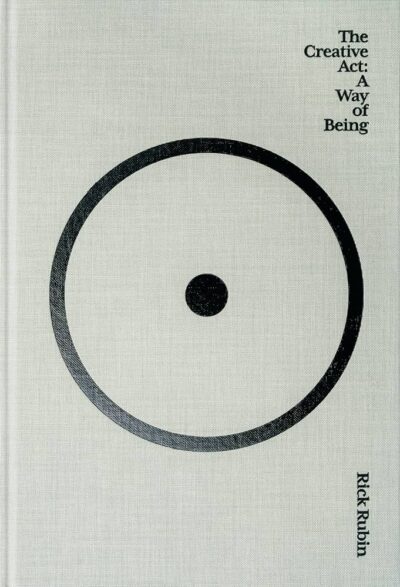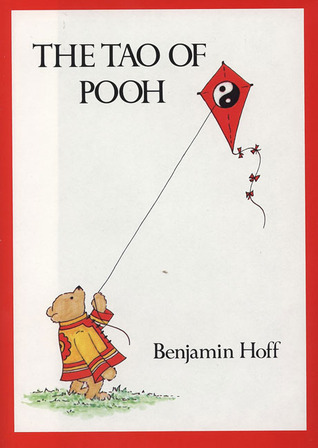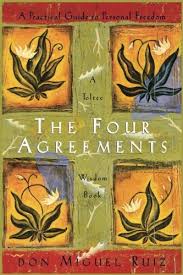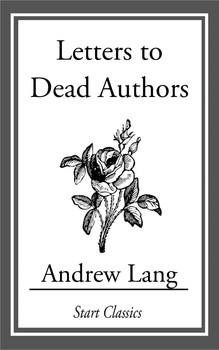182 Results with the "Philosophical" genre
Adventure Fiction (1164)
Biography (435)
Business & Finance (1)
Children's Literature (124)
Comics (6)
Culture (51)
Drama (123)
Dystopian (29)
Fable (86)
Fantasy (1132)
Fantasy (203)
Fiction (1010)
Finance (1)
Gothic Fiction (12)
Historical Fiction (615)
History (122)
Horror (56)
Lifestyle (36)
Literary (404)
Literary Fiction (207)
Memoir (113)
Mystery (422)
Non-fiction (87)
Novel (549)
Paranormal Fiction (96)
Philosophy (45)
Poetry (249)
Political Fiction (14)
Politics (42)
Practical (32)
Psychological (4)
Psychological Thriller (108)
Relationship (6)
Romance Novel (716)
Romantic Melodrama (14)
Satire (91)
Science (46)
Science Fiction (345)
Self-help (68)
Society (65)
Society (2)
Spiritual Growth (1)
story (2)
Thriller (704)
True Crime (56)
view (11)
Women's Fiction (2)
Young Adult (233)
-
Chapter
Rules
 Creativity flourishes when artists dare to question the limitations imposed by convention, using rules not as restrictions but as temporary stepping stones toward innovation. This chapter explores the distinction between the fixed principles of disciplines like mathematics and science, where laws are unchanging, and the fluid nature of artistic rules, which are more suggestive than binding. Art, unlike scientific formulas, thrives on its ability to evolve, shaped by cultural shifts, personal…
Creativity flourishes when artists dare to question the limitations imposed by convention, using rules not as restrictions but as temporary stepping stones toward innovation. This chapter explores the distinction between the fixed principles of disciplines like mathematics and science, where laws are unchanging, and the fluid nature of artistic rules, which are more suggestive than binding. Art, unlike scientific formulas, thrives on its ability to evolve, shaped by cultural shifts, personal…-
341.4 K • Ongoing
-
-
Chapter
Openness
 Openness challenges the natural human tendency to seek certainty, emphasizing the value of flexibility and curiosity, particularly in creative endeavors. Throughout history, the ability to make quick assessments and form immediate judgments was essential for survival in an unpredictable world. This instinct for categorization has carried into modern life, where people often rely on established patterns and mental shortcuts to process an overwhelming influx of information efficiently. However, while these…
Openness challenges the natural human tendency to seek certainty, emphasizing the value of flexibility and curiosity, particularly in creative endeavors. Throughout history, the ability to make quick assessments and form immediate judgments was essential for survival in an unpredictable world. This instinct for categorization has carried into modern life, where people often rely on established patterns and mental shortcuts to process an overwhelming influx of information efficiently. However, while these…-
341.4 K • Ongoing
-
-
Chapter
Chapter 3: The Tao of Who?
 Chapter 3: The Tao of Who? Pooh shares with Hoff that he has learned about Taoist concepts from his ancestors, like the poet "Li Pooh" and the painter "Pooh Tao-tse." Hoff gently corrects him, noting that the real names are Wu Tao-tse and Li Po. In the Taoist tradition, a central concept is P’u, which means “the Uncarved Block.” Unlike abstract ideas, Taoists prefer to explain such concepts through real-world examples, making them more tangible. P’u represents the natural, unaltered state of…
Chapter 3: The Tao of Who? Pooh shares with Hoff that he has learned about Taoist concepts from his ancestors, like the poet "Li Pooh" and the painter "Pooh Tao-tse." Hoff gently corrects him, noting that the real names are Wu Tao-tse and Li Po. In the Taoist tradition, a central concept is P’u, which means “the Uncarved Block.” Unlike abstract ideas, Taoists prefer to explain such concepts through real-world examples, making them more tangible. P’u represents the natural, unaltered state of…-
68.0 K • Ongoing
-
-
 Chapter I opens with a reflection on how Henri Bergson's thought marks a turning point in modern philosophy, particularly in how we approach consciousness, reality, and the sacred. His work introduces a way of thinking that does not begin with definitions or logical premises but with life itself—moving, changing, and creating. Bergson places intuition and imagination at the center of philosophical inquiry, offering an alternative to the sterile detachment often found in rigid rationalism. Though he does…
Chapter I opens with a reflection on how Henri Bergson's thought marks a turning point in modern philosophy, particularly in how we approach consciousness, reality, and the sacred. His work introduces a way of thinking that does not begin with definitions or logical premises but with life itself—moving, changing, and creating. Bergson places intuition and imagination at the center of philosophical inquiry, offering an alternative to the sterile detachment often found in rigid rationalism. Though he does…-
57.6 K • Ongoing
-
-
Chapter
Chapter 23 — Around a Spring
 Chapter 23 - Around a Spring opens with a portrayal of a quiet village that undergoes a dramatic change after the discovery of a mineral-rich, unpleasant-smelling spring. This once-overlooked spot suddenly finds itself at the heart of a commercial and social revival, triggered by the belief in the spring's healing qualities. With the help of a credible analyst and a few official approvals, the waters are rebranded as therapeutic, sparking infrastructure development and a fresh identity for the community.…
Chapter 23 - Around a Spring opens with a portrayal of a quiet village that undergoes a dramatic change after the discovery of a mineral-rich, unpleasant-smelling spring. This once-overlooked spot suddenly finds itself at the heart of a commercial and social revival, triggered by the belief in the spring's healing qualities. With the help of a credible analyst and a few official approvals, the waters are rebranded as therapeutic, sparking infrastructure development and a fresh identity for the community.…-
151.7 K • Ongoing
-
-
Chapter
Prayers
 Prayers are presented as a deep invitation to connect intimately with the divine, drawing attention to a heart-centered approach to experiencing love and communion with the Creator. The focus is on the breath, encouraging readers to become aware of this simple yet vital process. In doing so, the chapter highlights how something as fundamental as breathing can offer immense peace and joy. It serves as a reminder that the breath is a tool for mindfulness, grounding us in the present moment and offering a…
Prayers are presented as a deep invitation to connect intimately with the divine, drawing attention to a heart-centered approach to experiencing love and communion with the Creator. The focus is on the breath, encouraging readers to become aware of this simple yet vital process. In doing so, the chapter highlights how something as fundamental as breathing can offer immense peace and joy. It serves as a reminder that the breath is a tool for mindfulness, grounding us in the present moment and offering a…-
90.9 K • Ongoing
-
-
Chapter
Momentum
 In the chapter "Momentum," the author investigates the essential role of setting deadlines during the Craft phase of the creative process, emphasizing how it helps maintain a continuous flow of work. At the outset, creativity flourishes without restrictions, which can sometimes lead to an indefinite exploration that lacks closure. Once the initial ideas are clear and the necessary groundwork is laid, establishing deadlines becomes crucial to transition from the free-flowing phase of exploration to focused…
In the chapter "Momentum," the author investigates the essential role of setting deadlines during the Craft phase of the creative process, emphasizing how it helps maintain a continuous flow of work. At the outset, creativity flourishes without restrictions, which can sometimes lead to an indefinite exploration that lacks closure. Once the initial ideas are clear and the necessary groundwork is laid, establishing deadlines becomes crucial to transition from the free-flowing phase of exploration to focused…-
341.4 K • Ongoing
-
-
Chapter
Clean Slate
 In the chapter Clean Slate, the author explores the importance of detachment in the creative process, emphasizing how difficult it can be for artists to maintain an objective perspective on their work after prolonged immersion. Spending excessive time on a project can lead to creative blindness, where the artist becomes so accustomed to their work that they lose the ability to assess it clearly. This familiarity often breeds doubt, confusion, and an impaired sense of judgment, making it challenging to…
In the chapter Clean Slate, the author explores the importance of detachment in the creative process, emphasizing how difficult it can be for artists to maintain an objective perspective on their work after prolonged immersion. Spending excessive time on a project can lead to creative blindness, where the artist becomes so accustomed to their work that they lose the ability to assess it clearly. This familiarity often breeds doubt, confusion, and an impaired sense of judgment, making it challenging to…-
341.4 K • Ongoing
-
-
 Letter to Pierre de Ronsard begins with an image not of glory, but of solitude and loss—a poet once crowned by laurels now lying beneath disturbed soil, his tomb dishonored by storms of fanaticism and revolution. The admiration poured into this letter is tempered by the irony that while Ronsard sought a humble resting place by the Loire, shaded by trees and remembered only by his verse, his grave instead bore the brunt of turmoil. Yet, that broken tomb does not mark the end of his legacy. His poetry,…
Letter to Pierre de Ronsard begins with an image not of glory, but of solitude and loss—a poet once crowned by laurels now lying beneath disturbed soil, his tomb dishonored by storms of fanaticism and revolution. The admiration poured into this letter is tempered by the irony that while Ronsard sought a humble resting place by the Loire, shaded by trees and remembered only by his verse, his grave instead bore the brunt of turmoil. Yet, that broken tomb does not mark the end of his legacy. His poetry,…-
82.9 K • Ongoing
-
-
Chapter
Chapter 2 — Domestic Despots
 Chapter 2 - Domestic Despots explores the strange but familiar reality where dogs, rather than humans, appear to be in charge of the household. Within these homes, the owners are not masters but servants—fetching, feeding, and fussing at the slightest whim of a pawed commander. The dog’s comfort becomes paramount, its presence dictating where one sits, how loudly one speaks, and whether one travels at all. Vacations are shortened or skipped altogether, dinner menus are altered, and furniture becomes…
Chapter 2 - Domestic Despots explores the strange but familiar reality where dogs, rather than humans, appear to be in charge of the household. Within these homes, the owners are not masters but servants—fetching, feeding, and fussing at the slightest whim of a pawed commander. The dog’s comfort becomes paramount, its presence dictating where one sits, how loudly one speaks, and whether one travels at all. Vacations are shortened or skipped altogether, dinner menus are altered, and furniture becomes…-
151.7 K • Ongoing
-
- Previous 1 … 10 11 12 … 19 Next
